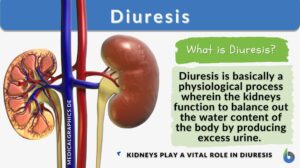Search Results for: pharmacology
Pharmacology
Definition noun The branch in medicine that deals with the study of drugs, especially their action, use, preparation, and... Read More
Chromatophore
Definition noun, plural: chromatophores A pigment-containing cell or light-reflecting structure, especially found in fish,... Read More
Melanocyte
Definition noun, plural: melanocytesA type of pigment cell that, in particular, produce melanin, and occurs in the... Read More
Generic name
Definition noun, plural: generic names (taxonomy) The first name of a binomen (pharmacology) A misnomer for nonproprietary... Read More
Melanophore
Definition noun, plural: melanophores A type of pigment cell that, in particular, produce and store... Read More
Synergistic effect
Synergistic Effects Definition In biology, synergistic effects are the effects when chemical substances or biological... Read More
Afferent Nerve
Afferent Nerve Definition The word ‘aferent’ means "steering or conducting something towards a destination". The... Read More
Neuroscience
Definition noun The branch of science that deals with the nervous system, particularly structure, development, function,... Read More
Biotechnology
Biotechnology Definition Biotechnology is a technology that uses biological systems or living organisms for a particular... Read More
Diaphoresis
What is Diaphoresis? Diaphoresis is referred to excessive or profuse perspiration or sweating which may be due to... Read More
Antifungal
Antifungal (Science: pharmacology) a drug that is destructive to fungi or suppressing their reproduction or growth,... Read More
Bolus injection
A bolus injection is the act of administering a dose of medication or substance directly into the bloodstream by injection.... Read More
Broad spectrum
Broad spectrum (Science: pharmacology) Often used to describe an antibiotic that is effective against a wide range of... Read More
Intravenous injection
Intravenous injection (Science: pharmacology) The giving of drugs into a vein through a... Read More
Clinical trial
Clinical trial (Science: pharmacology) research study conducted with patients, usually to evaluate a new treatment or drug.... Read More
Antifungicide
Antifungicide (Science: pharmacology) a substance which kills... Read More
Neurophysiology
Definition noun A branch of neuroscience that is concerned with the physiology of the nervous system Supplement Neuroscience... Read More
Branches of biology
What is a Branch of Biology? A branch of biology is a specialized field or a sub-discipline in a much broader field of... Read More
Medicinal plant
Definition noun Any plant whose roots, leaves, seeds, bark, or plant part is used for therapeutic, tonic, purgative, or... Read More
Vitamin B complex
Definition noun (pharmacology) A supplement containing the eight B vitamins, particularly thiamin (vitamin B1), riboflavin... Read More
Clinical neuroscience
Definition noun A branch of neuroscience that deals with the scientific study of the mechanisms underlying the different... Read More
Molecular neuroscience
Definition noun A branch of neuroscience that studies the nervous system in terms of its molecular biology, molecular... Read More
Neuroethology
Definition noun A discipline that deals with the scientific study of the neural basis of natural animal... Read More
Neurogastronomy
Definition noun A discipline that is concerned with how the brain perceives food and flavor and how the latter affects... Read More
Neuropsychology
Definition noun The scientific study of the physiological basis of psychological processes Supplement Neuroscience is the... Read More
Paleoneurology
Definition noun A scientific study of the evolution of the brain by combining the techniques used in paleontology and... Read More
Elimination
Elimination (Science: pharmacology) The act of expulsion or of extrusion, especially of drug expulsion from the... Read More
Accumulation
Accumulation The action or process of accumulating, state of being or having accumulated, a collecting together. (Science:... Read More
Peak plasma drug concentration
peak plasma drug concentration (Science: pharmacology) The highest level of drug that can be obtained in the blood usually... Read More








